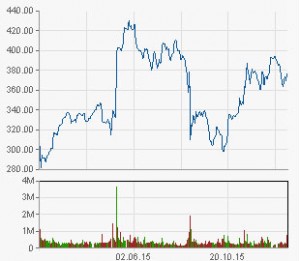Syngenta sold to ChemChina
It was foreseeable that ChemChina will buy Syngenta, since today in the morning it is (almost) fact. There was a big hectic on the markets about the future of Syngenta in the past, and this hectic in the agrochemical business was fired by the merger of DuPont and Dow Chemicals.
In spring/summer 2015 the US company Monsanto concretised the interest in a merger with Syngenta. The deal was blocked by the management of Syngenta. The pressure from the shareholders was increasing: www.kritische-syngenta-aktionaere.com.
What are the major pros and cons for the solution with ChemChina compared to a merger with Monasanto?
Pros:
- ChemChina has to date no interest to change or manipulate a well working company such as Syngenta. ChemChina has a primary interest in technology tansfer.
- Syngenta will have an advantage for the Chinese marktet, with good subsidaries in Asia in general. Former big growing and future markets such as South America (focus Brasil) are developing very slow now.
- Almost no regulatory hurders (‘market dominance’) due to little overlap between Syngenta and ChemChina.
- Monsanto has a bad reputation world-wide. The company is mainly engaged in the business with GMO (gen manipulated organism) seeds for maize, soybean, cotton and others. The so called ’round-up’ technology makes plants resistant to the herbicide glyphosate. The technology is old, and Monsanto has little knowledge in the development of modern pesticides. I am sure that many of my former colleagues at SYN would have been ashamed to work for a company such as Monsanto.
- Monsanto is a US company. We recently had an example of US business culture in Switzerland: following the take-over of Alstom the US company General Electric announced in Mid January to cancel 1300 of a total of 5500 jobs in Switzerland. The US maxime in business leadership has again proven to be: “save money, consolidate, maximize profit – do not care about knowledge and employees”. Happy that we do not have the Monsanto managers sitting in Basel.
- I agree that China wants to find solutions to feed their growing population, they need a big step forward in the agrochemical business, also for the safety of the consumers and the evironment. They do not want to be dependent on other states in food production, such as US does not want to be dependent on oil imports from the near east. And now it is exactly the US where the biggest fraid is coming from concerning the aquisition.
Cons:
- ChemChina is a Chinese state government owned company. Who will take the decisions for the future, what about the flow of information in the future?
- The general question: should we sell our knowledge to China, and thereby loose our jobs in the long term? I think this is not a real problem, they would find the knowledge anyway, we are in the age of ‘post-globalisation’.
To conclude: i agree with this take-over, it was for sure the better solution than a merger with Monsanto. Let’s see how things develop, the consolidation in the Agro-Business has not finished. It has started. Let’s have a look to Bayer, DuPont, Dow, Monsanto and BASF. I wonder!

 As a specialist in dietary safety I trust in the safety of agrochemical products, I rarely buy organic food. I also believe that modern agrochemical products are required to provide food for a growing population on our planet. However I do not appreciate the pressure from major investors to dominate and control the future of the responsible companies in the field.
As a specialist in dietary safety I trust in the safety of agrochemical products, I rarely buy organic food. I also believe that modern agrochemical products are required to provide food for a growing population on our planet. However I do not appreciate the pressure from major investors to dominate and control the future of the responsible companies in the field.